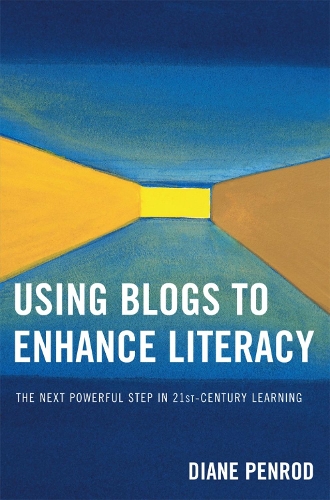
Using Blogs to Enhance Literacy: The Next Powerful Step in 21st-Century Learning
(Paperback)
Publishing Details
Using Blogs to Enhance Literacy: The Next Powerful Step in 21st-Century Learning
By (Author) Diane Penrod
Bloomsbury Publishing PLC
Rowman & Littlefield Education
6th March 2007
United States
Classifications
General
Non Fiction
Literacy (Theories of reading and writing)
371.334
Physical Properties
Paperback
188
Width 154mm, Height 233mm, Spine 15mm
281g
Description
Adolescents spend nearly six hours a day online, with most of those hours focused on blogging. Whether they are writing on MySpace, Xanga, Bebo, LiveJournal, or some other site, these youngsters invest time and energy creating new or different social identities. Beyond the mainstream media hype about the dangers of adolescents and blogs, we find that these young people are developing 21st century literaciesespecially in information and visual literacy. Using Blogs to Enhance Literacy examines this phenomenon and how it affects adolescents from offering easy avenues for bullying to bridging the digital divide. In this book, Diane Penrod addresses the social, developmental, and pedagogical issues surrounding the use of blogs and the implications that blogging has for current and future students.
Reviews
Beginning with the preface, Diane Penrod takes on the notion of change as the constant in being literate for today's world. In her examination of the blog phenomenon, she asks important questions about the role of blogs in changing what we know, how we know it, what we do, and how we do those things. -- Karen McComas, associate professor of communication disorders at Marshall University, Huntington, WV, and chair of the Technology Liaison Netwo
Penrod clearly supports the use of blogs in education, linking much of her discussion throughout the book to the presence of blogs in the classroom. She explains that weblogs support cooperative learning, critical thinking, cross-curricular learning initiatives, student centered classrooms and multiple intelligences. Penrods premise is a solid one: Technology is changing the way we understand literacy, and educational practices must respond to that change. * Teachers College Record *
This book's thesis is positive and timely: blogs can engage K-12 students, empowering them as writers and members of society. Particularly beneficial are the sections on how blogs can encourage at-risk students to express themselves, bridging the gap between academics and home life. * Choice Reviews *
Using Blogs to Enhance Literacy is the future of teaching composition in the classroom for all different levels. As a teacher in both the high school and college levels, I've found this text insightful for building a curriculum one year at a time. Diane Penrod doesn't just introduce a series of new ideas, she allows the reader to understand how to apply new concepts and actually make them work in both curriculum planning and the classroom. This text forces the reader to prioritize what actually happens in student writing environments and how to make the students think more actively. Whether you're looking for more ways of incorporating technology into the classroom, or just interested in finding new ways to engage students, this text is an important read. -- Adrian-Michael Blumenthal, language arts director, Woodlin School, Woodrow, CO
Author Bio
Diane Penrod is professor of writing arts at Rowan University in Glassboro NJ. She directs the masters program in writing and is the site director for the National Writing Project at Rowan. Dr. Penrod was named a 2000 Outstanding Young Scholar in Postmodern Theory by IBC London.
